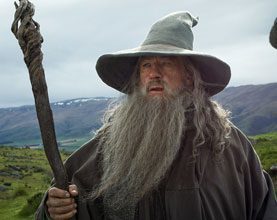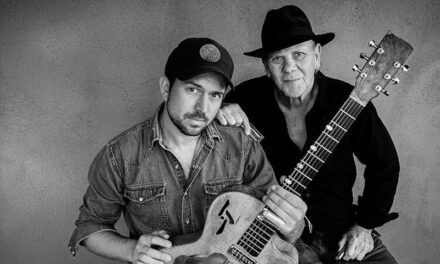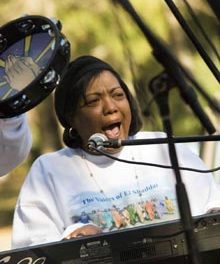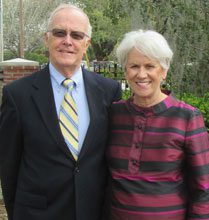 For the Lowcountry Wind Symphony’s Winter Concert, Music Director Donald F. Jemella has chosen the themes of ‘Mystery and Mythology.’ These free concerts will be held at 7 pm on Friday, February 1st, at St. Peter’s Catholic Church, 70 Lady’s Island Drive, Beaufort; and on Saturday, February 2nd, at 4 pm, Lord of Life Lutheran Church, 351 Buckwalter Parkway, Bluffton. All are invited to attend.
For the Lowcountry Wind Symphony’s Winter Concert, Music Director Donald F. Jemella has chosen the themes of ‘Mystery and Mythology.’ These free concerts will be held at 7 pm on Friday, February 1st, at St. Peter’s Catholic Church, 70 Lady’s Island Drive, Beaufort; and on Saturday, February 2nd, at 4 pm, Lord of Life Lutheran Church, 351 Buckwalter Parkway, Bluffton. All are invited to attend.
The program includes music by Richard Wagner, Guiseppe Verdi, Gustav Holst, Stephen Melillo and others. Many of the pieces explore mythical characters in different cultures in the age old struggle between good and evil. Here are some highlights of the coming concerts.
‘Fate of the Gods’ is a programmatic work inspired by Norse legends. The composer, Steven Reineke, born in 1970, is also the present conductor of the New York Pops. The evil God, Loki, intent on bringing about the end of the world, is opposed by Balder, son of Odin. In the last furious battle, one symbol, the Tree of Life survives – evil is defeated and only goodness remains!
‘Winged Stallion’ describes in glorious sound the flying horse, Pegasus. According to Greek mythology, Pegasus reached the top of Mt. Olympus, dwelling place of the gods. There he galloped through the heavens carrying the chariot of the god, Zeus, who thrusts his frightening thunderbolts into the sky. For his loyal work, Zeus changed Pegasus into a constellation, which bears his name to this day. American composer, Rossana Galante, at age 52, is another of our many bright young composers. He writes primarily for the film industry.
Assistant Conductor, Deborah Hamner will take the podium to lead LWS in ‘Jupiter,’ from the Suite known as “The Planets.” English composer, Gustav Holst, is chiefly remembered for this seven-movement work. One hundred years after its premiere in 1918, this work, once described as “a symphonic blockbuster,” remains a perennial favorite of orchestral and band repertoire. It has been championed and cherished by such diverse music makers as Frank Zappa, Hans Zimmer, and John Williams. One of Jupiter’s main melodies was used by the British rock group Manfred Mann’s Earth Band in 1987. Holst was not an astronomer, but he gave each of his planets a ‘personality nickname.’ Jupiter is known as ‘The Bringer of Jollity.’
Stephen Melillo is among the most creative and prolific composers writing music today. In addition to his strong interest in patriotism, Melillo continues to explore the theme of contemporary heroes who do not always make news media headlines. He frequently dedicates his music to every day people who rise to the occasion and make a significant difference in the lives of others. Among those musical meditations on heroes in this program are Melillo’s own grandfather, as well as a young woman who died in the Columbine High School massacre. LWS presents four of his compositions – all very different in character – ‘Lonely is the Knight,’ ’When Knights Have Fallen,’ ‘The Nature of Hope,’and Him. In‘Him,’Melillo explores the mystery of life in his humble tribute tothe Supreme Being. Stephen Melillo’s musical quests run the gamut from lofty brass fanfares to gentle quiet passages. In examining his music we find a hidden story and a compelling reason for each carefully thought out composition. He counsels all of us in these words, “Let us be inspired by those who have sacrificed so much.”
Symphony No. 1 “The Lord of the Rings” is the first major symphonic work for concert band written by composer, Johan de Meij. For this he won the prestigious Sudler Composition Award in 1989. It is a a five movement work based on themes from J.R.R Tolkien’s best-selling novel, Lord of the Rings. LWS has chosen to perform the first movement, ‘Gandalf.’ The story introduces an epic struggle against forces which would destroy the world. It presents a musical portrait of the wise and noble Wizard, Gandalf, chosen to lead the Fellowship of the Ring in order to save the world from disaster.
The first performance of Guiseppe Verdi’s opera, Aida was given the day before Christmas in 1871, and remains an operatic favorite. New York City’s Metropolitan Opera Company alone has sung it over 1,000 times. The tale of forbidden love in its soaring music has certainly stood the test of time. Nearly 150 years since its first performance, today’s audiences find it easy to hum along with the ‘Triumphal March.’ This occurs in the second act, celebrating the victory of Egypt over Ethiopia. As in most opera tragedies, King Rhadames’ ardent love for a young enslaved woman cannot survive. The elaborate staging of Aida is famous for its spectacular scenes with live animals and a large cast.
‘Liebestod’(Love Death) comes from the final scene of Richard Wagner’s tragic opera, Tristan and Isolde. This is a story of illicit love between star crossed lovers- he, King Mark’s vassal and she betrothed to the king. When Isolde learns that her beloved has died she, too, chooses death. In Liebestod, Wagner has masterfully depicted the yearning, longing, rapture, and misery of Isolde’s love for Tristan. In a letter to friend and composer, Franz Liszt, Wagner reflects on the idea that he had never known the true happiness of love. Perhaps a real life mystery!
Lowcountry Wind Symphony strives to showcase the finest in original and transcribed symphonic compositions, presenting increasing challenges for the band and new musical ideas for our audiences. LWS is a concert band, made up local amateur and professional brass, wind, and percussion players. Now in its fourth season, the membership has grown steadily to number more than 65 musicians. Those interested in joining LWS may contact Don Jemella at 917-439-0244 or Bobbi Logan, 843-705-3289 for more information.
We invite you to join us for ‘Mystery and Mythology’ as together we continue ‘Exploring What’s Musically Possible.’ For more information about LWS please visit www.lowcountrywindsymphony.com







